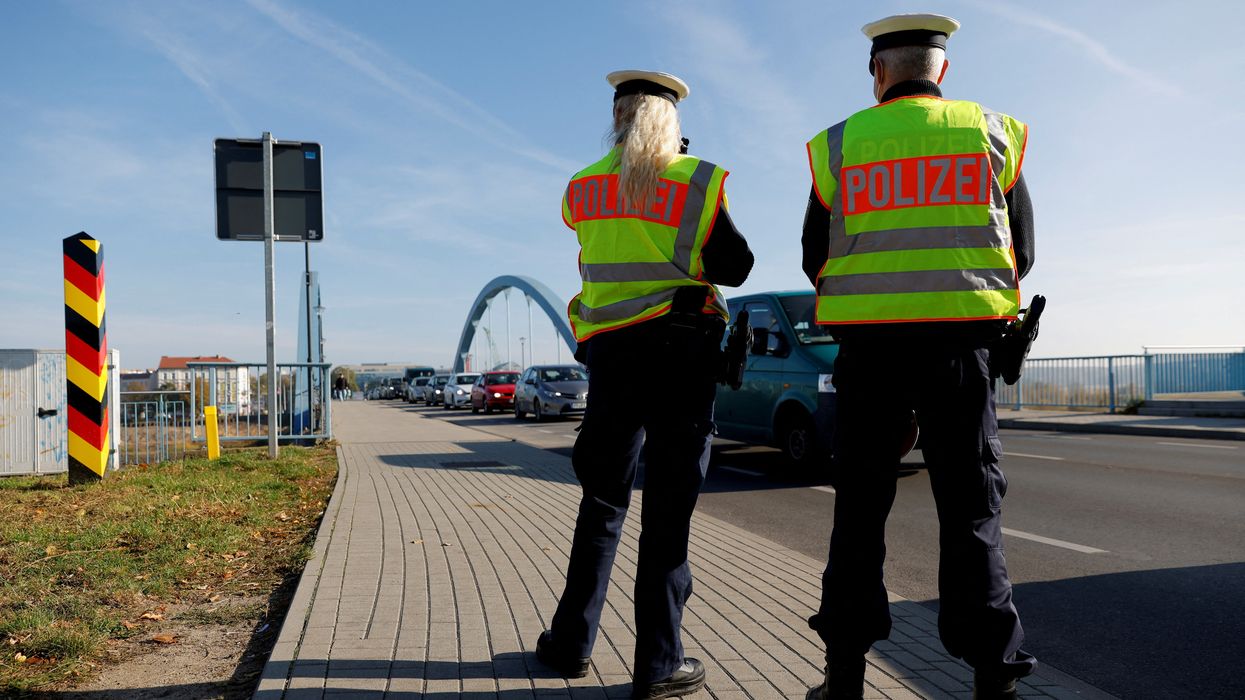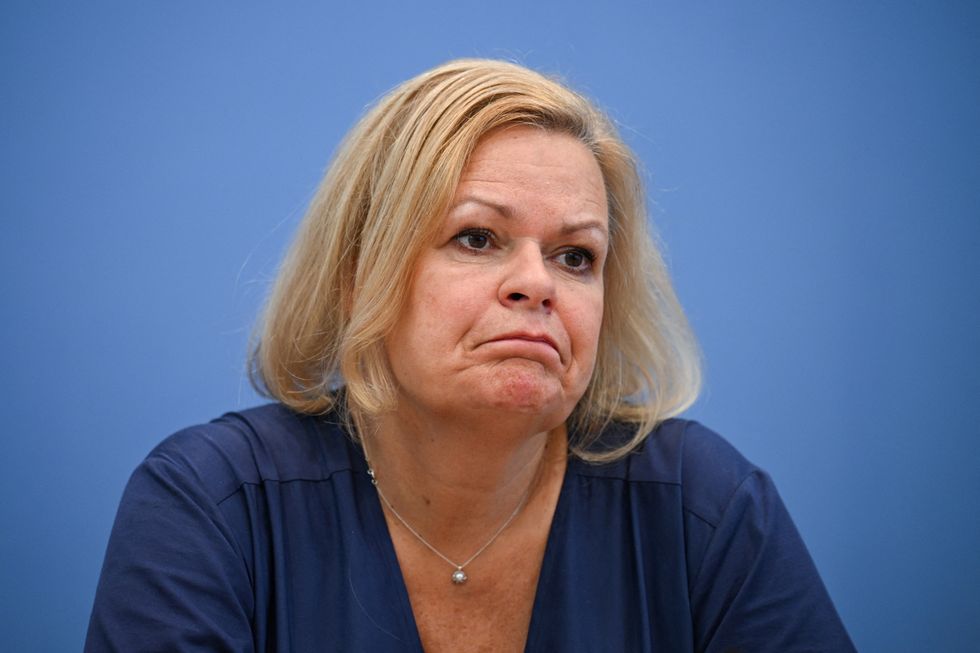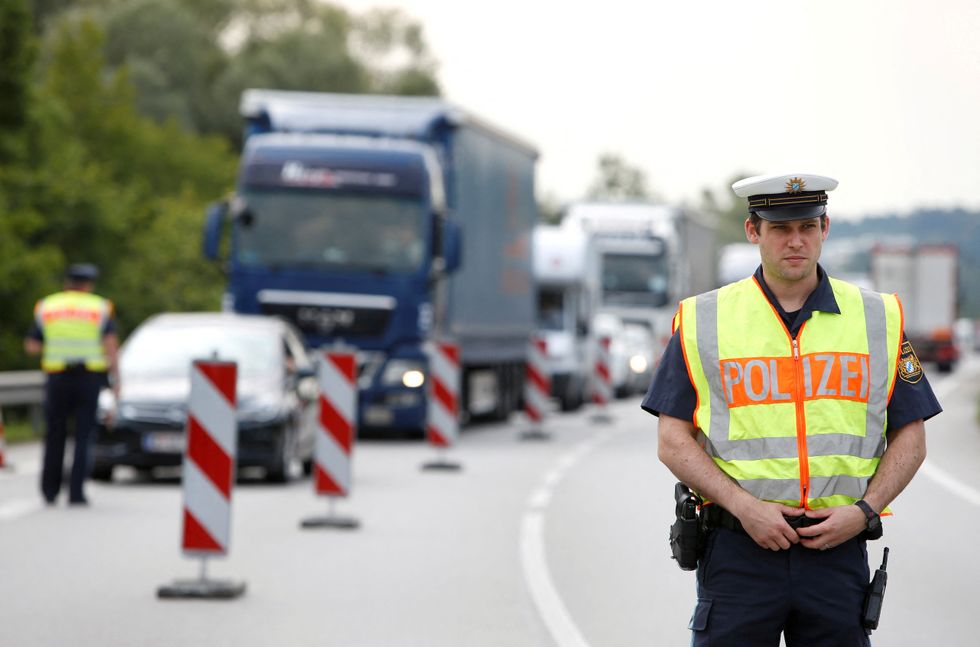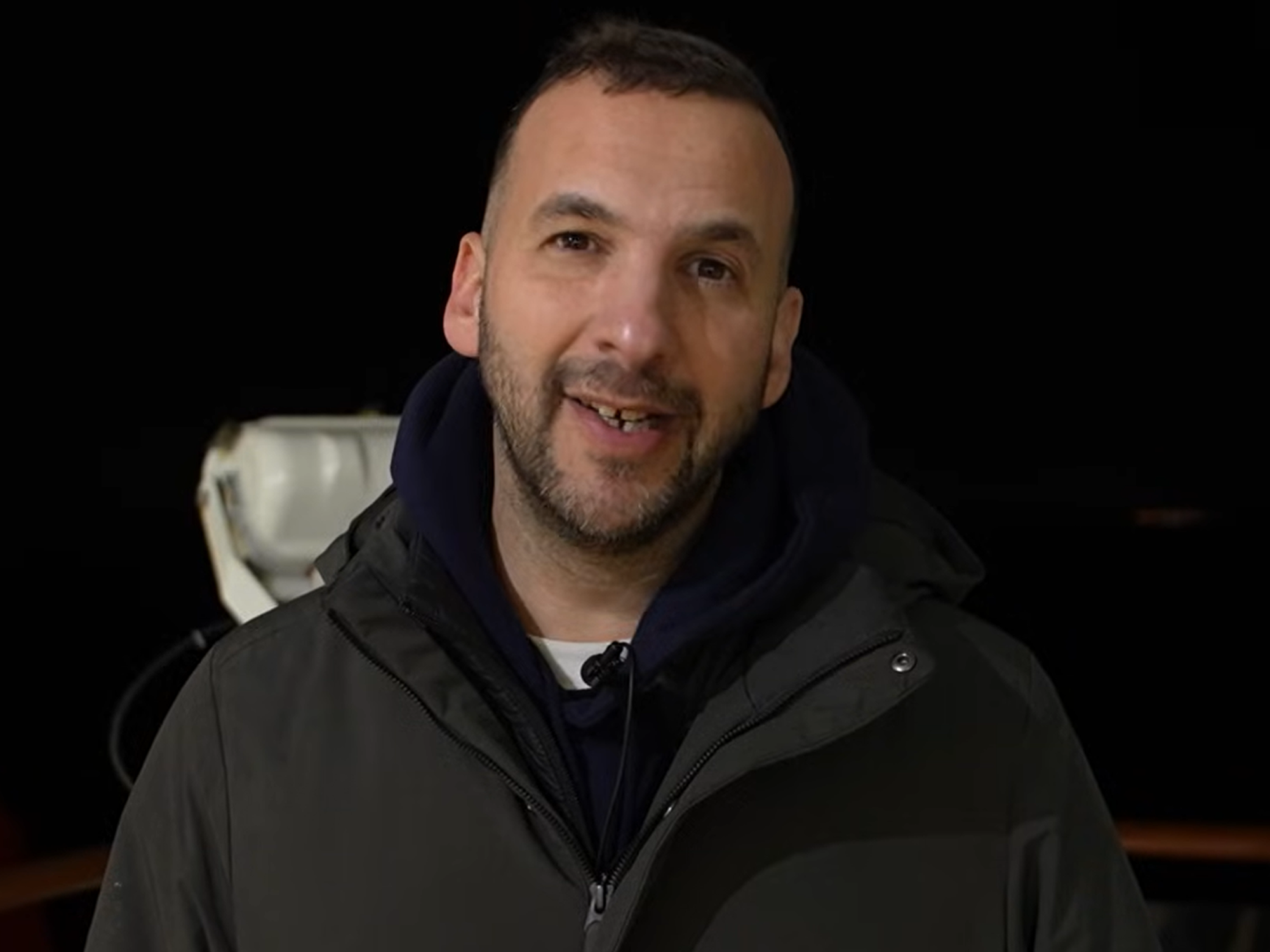REVEALED: The EXACT number Germany could turn back by closing its borders

The German federal police patrols along the German-Polish border area in order to detain migrants from Belarus in Frankfurt
|Reuters
German police will carry out checks on the borders with nine neighbouring countries
Don't Miss
Most Read
Germany will temporarily institute tighter controls at all nine of the country's land borders to reduce irregular migration and improve security, Berlin said on Monday.
The controls will begin on September 16 in the European Schengen zone, which is usually a wide area of free movement, and last for six months.
German Interior Minister Nancy Faeser announced in a press conference: "We want to further reduce irregular migration.
"To this end, we are now taking further steps that go beyond the comprehensive, ongoing measures."

German Interior Minister Nancy Faeser said measures announced last year have allowed Germany to return 30,000 migrants to Austria
|Reuters
"The number of refusals will increase as a result of this measure alone," she added.
The minister also explained that the government is designing a scheme allowing authorities to reject more migrants directly at German borders.
Last month, Germany's Federal Criminal Police Office (BKA) released a report saying that there was a 33 per cent increase in illegal border crossings in 2023.
They wrote that 266,224 people were suspected of entering the country illegally, a number Germany is set to target by imposing stricter border controls this year.
The BKA said the main countries of origin for people illegally crossing the border into Germany were Syria (54,207), Turkey (35,732) and Afghanistan (35,370).
The EU has also seen a rise in illegal crossings with the European Border and Coast Guard Agency recording 380,200 unauthorized crossings along the external border of the 29-country Schengen free-movement area, according to the BKA.
The new controls are part of a series of measures Germany is taking to toughen its stance on irregular immigration following a surge of arrivals.
Last year, Berlin announced similar stricter controls on its borders with Poland, the Czech Republic and Switzerland.
Germany said the measures have allowed it to return 30,000 migrants to Austria since October 2023.
Faeser said the new model would allow the government to turn back many more than this now that the border controls are extended to the remaining borders.
Despite these new measures, it may take some time for migrants to be turned away at the border.
But it could result in more returns to other European countries further down the line and also act as a deterrent, according to Susan Fratzke at the Migration Policy Institute.
The rules will be applied across the length of Germany's 2,300-mile land border with Denmark, the Netherlands, Belgium, Luxembourg, France, Switzerland, Austria, the Czech Republic and Poland.
However, these new controls may be met with force from Germany's bordering countries if German authorities ask other countries to take back asylum seekers and migrants.

Austria's Interior Minister said his country would not be taking any migrants turned away by Germany at the border
|Reuters
LATEST FROM MEMBERSHIP:
Austria's Interior Minister Gerhard Karner told Bild newspaper on Monday that his country would not be taking any migrants turned away by Germany at the border.
He said: "There's no room for manoeuvre there.
"It's the law. I have directed the Head of the federal police to not allow any returns."
Under EU rules, countries in the Schengen area, are only allowed to introduce border checks as a last resort to avert threats of national security or public policy.
Concerns about immigration have been pushed to the forefront of German politics following recent deadly knife attacks where the suspects were asylum seekers.
The Islamic State group claimed responsibility for a knife attack that killed three people in the western city of Solingen last month.
The Government has also been facing pressure to respond to concerns over migration as support for the right-wing party, the AfD has increased and the party won its first state election in the eastern state of Thuringia earlier this month.










